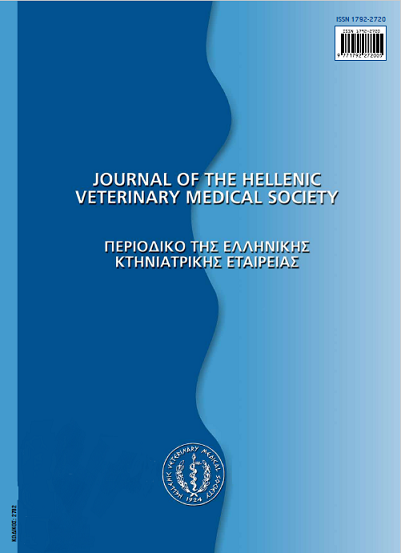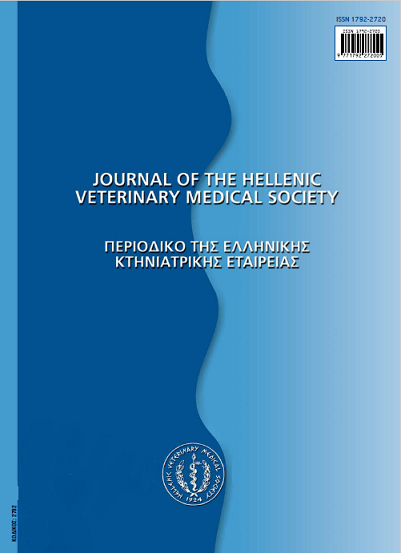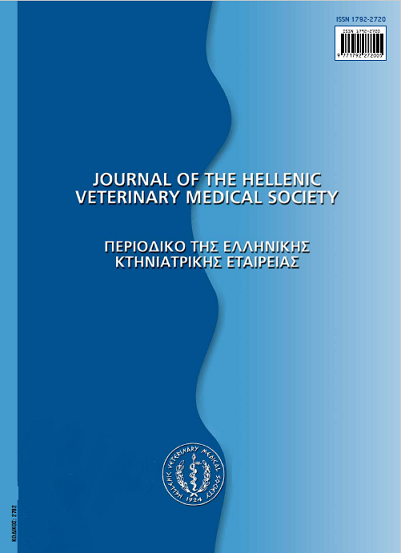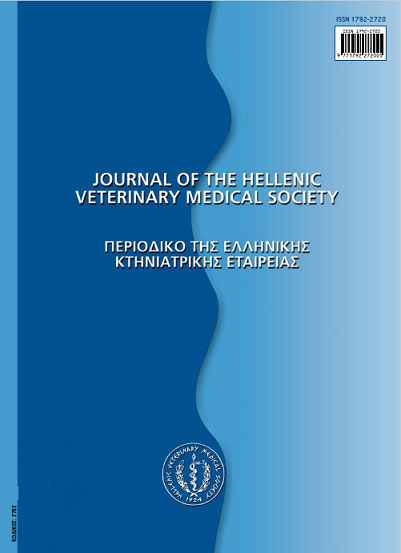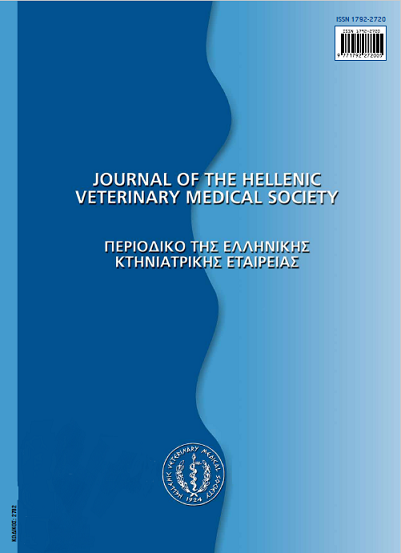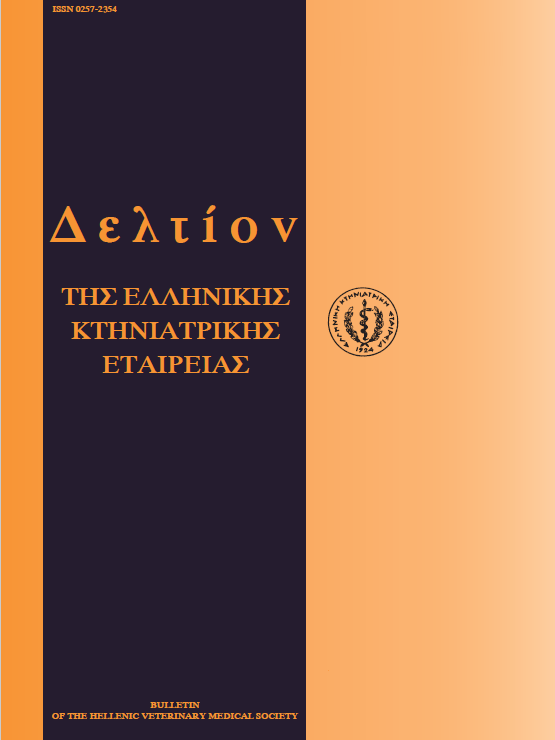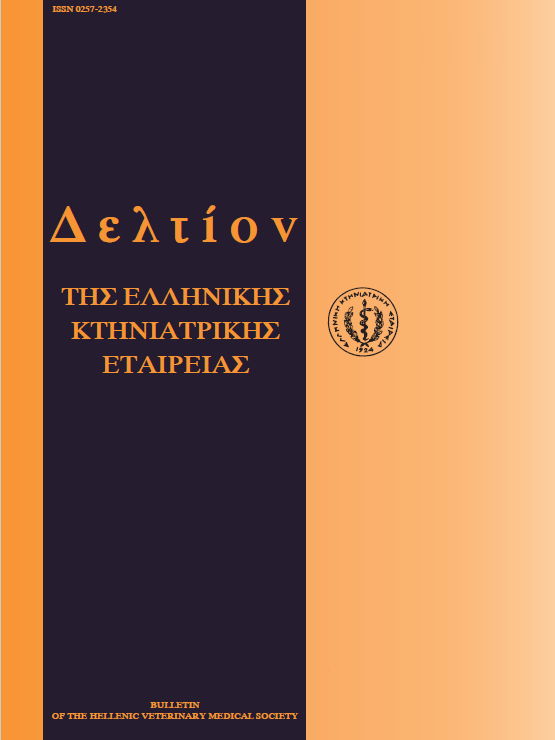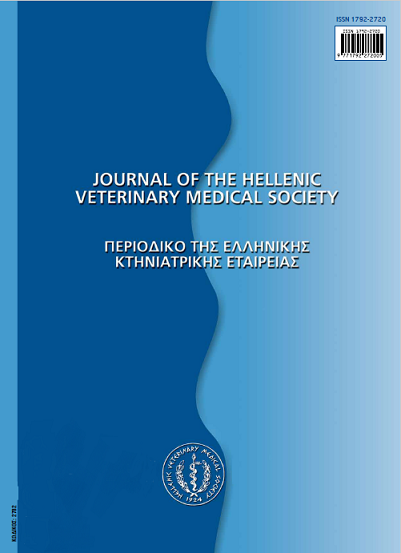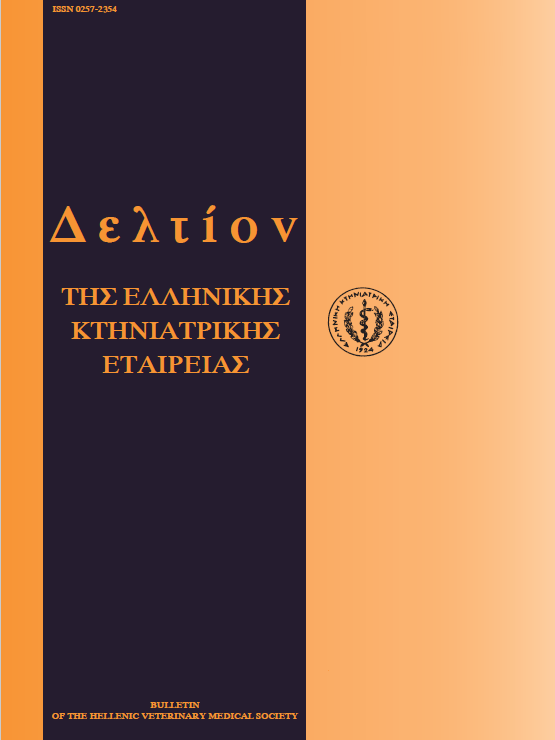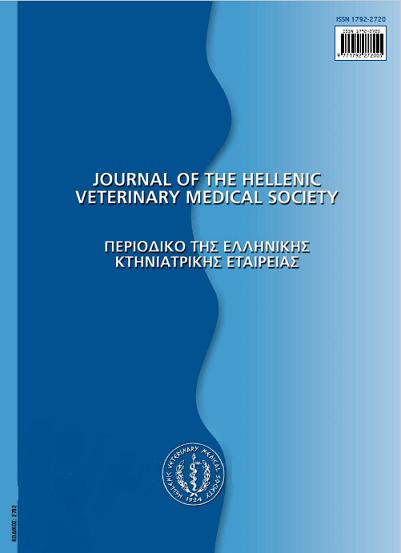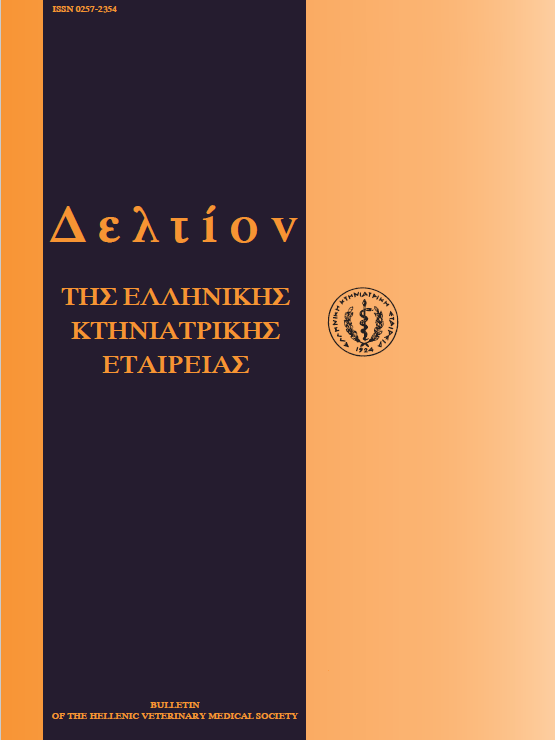Prevalence of failure of passive transfer of immunoglobulins in Holstein calves in Northern Greece and association with management practices
Abstract
Objectives of the present study were to estimate prevalence of failure of passive transfer of immunoglobulins in dairy calves in Northern Greece and to investigate factors potentially associated with it. Four hundred and thirty seven clinically healthy calves in 30 farms were included in the study. Age of calves was 18 h to 7 d. Animals were blood sampled and serum total protein concentrations were measured by a refractometer. Two thresholds of total protein concentration were used: 5.2 or 5.5 g dL 1. At calf level, an animal was considered to have failure of passive transfer of immunoblobulins when total protein concentrations were lower than the above thresholds. At herd level, a herd was considered to have failure of passive transfer of immunoglobulins when >20% of sampled calves had total protein concentration was <5.2 or <5.5 g dL-1.
Moreover, data on health management on the farm were collected in a purpose-built questionnaire. At 5.2 g dL-1, 20% of the calves and 40% of the herds were considered to have failure of passive transfer of immunoglobulins; when the 5.5 g dL-1 threshold was used, respective prevalences were 26% and 53%. At herd level, mean blood serum total protein concentration tended to be positively affected by a short interval between birth and first colostrum meal, by maintenance of a stock of frozen colostrum and by establishment of a close-up group of dry cows. At calf level, the same factors had a statistically significant positive effect on blood serum total protein concentration. Moreover, quantity of colostrum received by calves and colostrum condition were also positively related with blood serum total protein concentration. In conclusion, failure of passive transfer of immunoglobulins is a common problem in Holstein calves in Northern Greece. Increased prevalence of the problem implies that increased efforts and management practices need to be applied to ensure the adequate transfer
of maternal immunoglobulins to newborn calves. Also, it becomes obvious from all the above findings that many farmers
are not well informed for management practices that have to implement to ensure adequate amounts of immunoglobulins to
newborn calves. Hence, dissemination of knowledge concerning best management practices for achieving adequate passive
immunity is considered to be of significant importance.
Article Details
- Come citare
-
PANOUSIS (Ν. ΠΑΝΟΥΣΗΣ) N., KRITSEPI- KONSTANTINOU (Μ. ΚΡΙΤΣΕΠΗ-ΚΩΝΣΤΑΝΤΙΝΟΥ) M., KALAITZAKIS (Ε. ΚΑΛΑΪΤΖΑΚΗΣ) E., GIADINIS (Ν. ΓΙΑΔΙΝΗΣ) N., & VALERGAKIS (Γ.Ε. ΒΑΛΕΡΓΑΚΗΣ) G. E. (2017). Prevalence of failure of passive transfer of immunoglobulins in Holstein calves in Northern Greece and association with management practices. Journal of the Hellenic Veterinary Medical Society, 64(3), 193–200. https://doi.org/10.12681/jhvms.15499
- Fascicolo
- V. 64 N. 3 (2013)
- Sezione
- Research Articles
Authors who publish with this journal agree to the following terms:
· Authors retain copyright and grant the journal right of first publication with the work simultaneously licensed under a Creative Commons Attribution Non-Commercial License that allows others to share the work with an acknowledgement of the work's authorship and initial publication in this journal.
· Authors are able to enter into separate, additional contractual arrangements for the non-exclusive distribution of the journal's published version of the work (e.g. post it to an institutional repository or publish it in a book), with an acknowledgement of its initial publication in this journal.
· Authors are permitted and encouraged to post their work online (preferably in institutional repositories or on their website) prior to and during the submission process, as it can lead to productive exchanges, as well as earlier and greater citation of published work.

